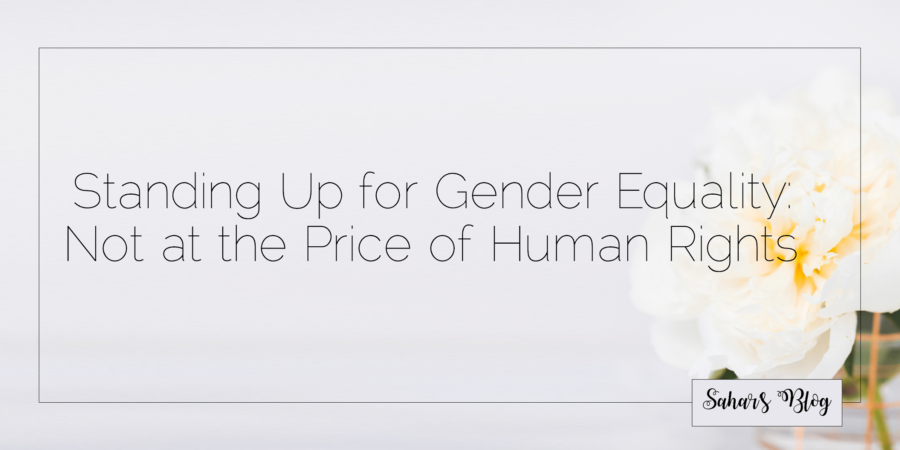I am so grateful to live in a place where my rights, as a woman, are constantly being considered and protected. I try to regularly participate in the discourse for gender equality in the name of the millions of women around the world who have little to no rights at all. By pushing forward the conversation in Canada, I’m hoping to help inspire others to build a society as kind to its women as this one is.
But despite all the wonderful things happening here, we have not yet built a perfect society. And we have come to a place, in the conversation about gender equality, where I think it’s so important to differentiate between defending human rights and replacing one form of oppression for another, lest that, in the name of progress, we slip backwards.
From Defending Human Rights…
Defending human rights is making sure that people can make decisions for themselves, that they are treated as equals and can make the decisions that they want to take.
And this is where it gets sticky.
…To Oppressing Others
Oppression is when we impose something on someone else, whatever that thing is. Now there are some things that a lot of people can easily agree we can’t impose on someone else. But there are other things that some people choose to do that are not acceptable to others.
And this, again, is where it gets sticky.
The Lack of Choice Should be the Issue, Not the Choice Made
No one should be forced to wear a hijab, for example. If a woman has no choice, then she is oppressed.
However, if someone wants to wear a hijab, and she isn’t allowed to hold certain jobs or positions, or some of her rights are denied to her because of it, then she is being oppressed by the very people who want to free her from oppression.
The Case of the Unchangeable Surname; from Protecting Women to Oppressing Them
I personally feel this when it comes to changing my surname—or rather, the fact that the choice of changing my surname once I got married had pretty much been taken away from me. I understand and appreciate that, historically, the institutions serving the region of Québec decided that women didn’t need to change their surname just because they were getting married. Marriage did not define them, something that I completely agree with.
However, I now do not have the right to change my surname unless I go through a lengthy and expensive legal process that doesn’t even guarantee that I am allowed to change my surname. I do not have freedom of choice because of the very rule that was created to keep me free from oppression.
Now changing my surname isn’t nearly as big a deal as not allowing a woman to wear a hijab without consequences, but I feel it’s an example that highlights the same thought process that begins in such a good place but ends in such a murky one.
Final Thoughts
What is the solution, then?
Not allowing women to wear the hijab isn’t going to help create equality. We have to dig deeper and see why there are women who are still forced to do certain things that they don’t want to. The con is that this is a much more difficult process to embark on; it isn’t legislation that is going to create gender equality, but rather a profound transformation of the minds of men and women, and a parallel transformation in the institutions that govern our society.
The pro? Every step of this process brings us closer to true equality between men and women, and with each step, the various consequences of gender inequality will fade slowly but surely away. And not just that; we are not going to be left with other problems or forms of oppression to address. We are going to have created a reality in which we will not have created them in the first place.

